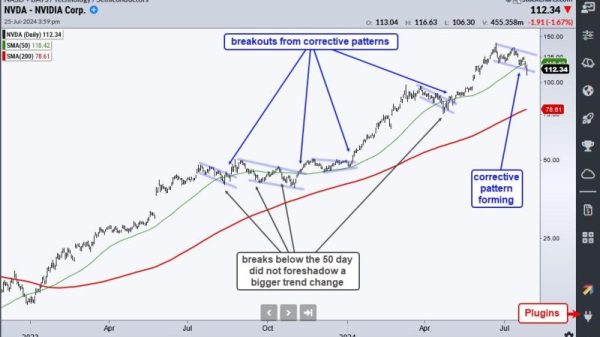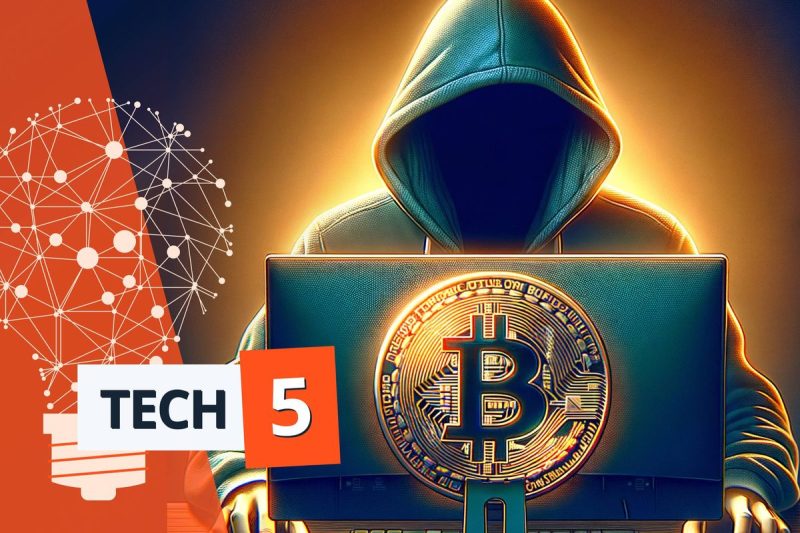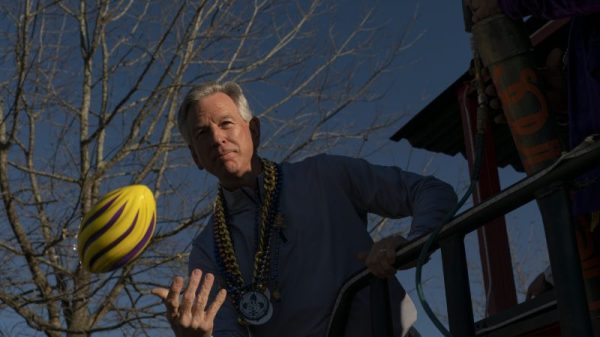The S&P 500 (INDEXSP:.INX) achieved another record close this week, finishing above 5,000 for the first time.
Meanwhile, Australian computer scientist Craig Wright took the stand in London to defend his claim that he is Satoshi Nakamoto, the creator of Bitcoin. Plus Google rebranded its chatbot, previously known as Bard.
1. S&P 500 passes 5,000 point milestone
The S&P 500’s record close of 5,026.61 came on Friday (February 9) and followed five consecutive weeks of gains. The index has now had 10 record closes so far in 2024, fueled by the ongoing rally in tech stocks.
NVIDIA (NASDAQ:NVDA) came out on top all week long, even though investors have become increasingly interested in other artificial intelligence (AI) stocks. NVIDIA hit a new high on Wednesday (February 7) after breaking through the US$700 ceiling; it briefly dipped down to US$696.41 on Thursday (February 8) and closed the week at US$721.33.
Alphabet (NASDAQ:GOOGL), the parent company of Google, started the week at US$142.91 and hovered within that range for most of the period before jumping 2.12 percent on Friday afternoon to end the week at US$149.
Microsoft (NASDAQ:MSFT) reached market cap of US$3.125 trillion, becoming the most valuable company ever. It took the title from Apple (NASDAQ:AAPL), which closed the week with a market cap of US$2.92 trillion.
Shares of Microsoft climbed 2.1 percent between Tuesday (February 6) and Wednesday, then increased again within the first few hours of trading on Friday morning before ending the week at US$420.55. Apple experienced a week of ups and downs after reporting sales in China that missed Wall Street targets. Company shares saw the highest uptick on Wednesday and finished the week at US$188.85, 0.38 percent higher than where they started.
After reporting better-than-expected Q4 earnings and a new partnership between Amazon Web Services and Owkin on Thursday, Amazon (NASDAQ:AMZN) shares increased by 0.62 percent during after-hours trading and continued to climb higher on Friday, peaking at US$174.88 just before the market closed that day.
By comparison, Meta Platforms (NASDAQ:META) experienced a bit of a rough ride. Although shares rose 3.18 percent after hours on Wednesday, the company ultimately closed the week lower at US$468.11. Meanwhile, after seeing shares dip all throughout January, Tesla (NASDAQ:TSLA) rose 5.18 percent this week and closed at US$193.57.
2. Australian businessman defends his claim to be Satoshi Nakamoto
In court on Tuesday, Wright asserted his claim that he is the elusive creator of Bitcoin, Satoshi Nakamoto.
Wright stated that he was the one who sent the iconic Bitcoin whitepaper to early crypto enthusiast and programmer Hal Finney in 2008; it describes how digital currencies could circulate globally without intermediaries like banks or governments. The whitepaper was signed ‘Satoshi Nakamoto,’ an homage to Japanese philosopher Tominga Nakamoto, as well as Satoshi David, a character in a book about JP Morgan, and a Pokémon character.
Authorship of the whitepaper has been a point of intrigue since its release. Wright has been claiming to be the ringleader of the team that created Bitcoin since 2016, and has filed numerous lawsuits against developers using open-source technology to profit from Bitcoin trading, asserting his intellectual property rights. His claim has been contested by the majority of the crypto community, and the trial that began this week could finally put the controversy to bed.
Wright is facing off against the Crypto Open Patent Alliance (COPA), which is suing the businessman for committing forgeries and threatening developers. “Wright has threatened to bankrupt developers, sent notices of his intent to sue, and has, in fact, engaged in scorched earth litigation against these volunteers, all premised on the baseless assertion that he is the founder of Bitcoin,” said a representative for COPA on Monday (February 5).
Wright presented various documents at the start of the trial that support his claim, but the opposing party raised serious doubts about the authenticity of these materials, suggesting that they may be forgeries. COPA pointed out inconsistencies such as the use of fonts and software that didn’t exist in 2008.
On Thursday, Wright, who has acknowledged that he taught former university students how to alter metadata, admitted that many of the documents he submitted into evidence were forged, but blamed solicitors, hackers and ex-employees for maliciously or mistakenly altering the documents. The trial is expected to last until February 13.
3. Google renames Bard to Gemini
Google has rebranded its chatbot, formerly known as Bard, to Gemini as part of a strategic move to highlight the new AI model of the same name that now powers its conversational AI. This rebranding is part of Google’s bid to compete with rivals like Microsoft and OpenAI as it seeks to position itself as a leader in AI technology.
In addition to the renaming, Google is also offering a new pricing structure with different tiers of access and features depending on the subscription level. The Google One AI Premium Plan, which costs US$19.99 per month, includes 2 terabytes of cloud storage and access to Gemini Advanced, which uses a powerful Ultra 1.0 AI model. Subscribers will also get to use Gemini in Gmail and Google’s productivity suite at some point in the future.
Android users will have the option to choose Gemini as the default digital assistant on their phones, and it will be available through the Google iPhone app as well.
Gemini Advanced is available in 150 countries and territories, but only in English at present. The company expects to expand its language offerings as advancements are made.
4. FCC declares voice-cloning technology in robocalls illegal
On Thursday, the US Federal Communications Commission (FCC) declared that using voice-cloning technology when placing robocalls is an illegal activity, effective immediately.
‘Bad actors are using AI-generated voices in unsolicited robocalls to extort vulnerable family members, imitate celebrities and misinform votes,’ FCC Chairwoman Jessica Rosenworcel stated. ‘State attorneys general will now have new tools to crack down on these scams and ensure the public is protected from fraud and misinformation.’
This news comes almost three weeks after robocalls pretending to be US President Joe Biden spread throughout New Hampshire, telling Democrats not to vote in the primary election; the event was later linked to two Texas-based companies. The incident highlighted the increasing sophistication of deep-fake technology and its potential to be used as a tool for political misinformation, and prompted senators from both sides to press the US Election Assistance Commission to take steps to thwart attempts to spread misinformation ahead of the election season.
The matter was taken to a vote, which passed unanimously. Anyone who is found to violate the new law can face fines of more than US$23,000 per call.
5. Research group trains robot to navigate unfamiliar rooms
A collaborative robotics team composed of students from New York University and a researcher from Meta’s AI division has developed a cutting-edge robot capable of identifying a specific object in an unfamiliar environment and transporting it to a predetermined location. The research team published a paper on the project in arXiv, noting that while significant advancements have been made in both visual language models and individual robotic skills, the integration and coordination of these capabilities remains a relatively underexplored area of study.
The robot was acquired from Hello Robot, a California-based company that develops robots to help humans with tasks in the home and office. The robot was provided with a 3D layout of 10 volunteer homes created using an iPhone, and then the research team began giving the robot simple moving instructions like “yogurt beverage to the table.’ Out of 170 requests, the robot was able to successfully carry out 58.5 percent of them.
Securities Disclosure: I, Meagen Seatter, hold no direct investment interest in any company mentioned in this article.





























